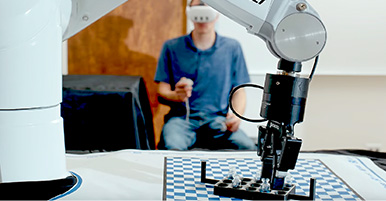Citation
Bala, R.; Cherukuri, V.; Kumar, V.; Monga, V. MULTI-SCALE REGULARIZED DEEP NETWORK FOR RETINAL VESSEL SEGMENTATION. IEEE International Conference on Image Processing.; Taipei, Taiwan. Date of Talk: 09/22/2019
Abstract
Vessel segmentation of retinal images is a key diagnostic capability in ophthalmology. Early approaches addressing this problem employed hand-crafted filters to capture vessel structures, accompanied by morphological processing. More recently, deep learning techniques have been employed to significantly enhance segmentation accuracy. We propose a novel domain enriched deep network that consists of two components: 1) a representation network which learns geometric (specifically curvilinear) features that are tailored to retinal images, followed by 2) a task network that utilizes the features obtained from the representation layer to perform pixel-level segmentation. The representation and task networks are learned jointly for any given training set. To obtain effective representation filters, we develop a new orientation constraint that enables geometric diversity of curvilinear features. A multi-scale extension is further developed to enhance segmentation of thin vessels. Experiments performed on two challenging benchmark databases reveal that the proposed regularized deep network can outperform state of the art alternatives as measured by common evaluation metrics. Further, the proposed method exhibits a more graceful decay in performance as training data is reduced.


